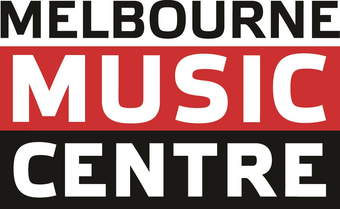Intergenerational trauma, the transfer of emotional and psychological wounds from one generation to the next, is a heavy burden carried by many individuals and communities around the world. While it's a complex issue with deep roots, there is hope and healing to be found in the transformative power of music and the act of picking up an instrument.
Understanding Intergenerational Trauma
Before we explore the therapeutic benefits of music, it's essential to grasp the concept of intergenerational trauma. This form of trauma is often rooted in historical events like war, genocide, colonization, or systemic oppression, which can affect entire communities for generations. The emotional scars and coping mechanisms of past generations can be passed down to their descendants, influencing their mental health and well-being.
The Healing Potential of Music
Music has a unique ability to connect with our emotions and provide an outlet for expression, making it an invaluable tool for addressing intergenerational trauma. Here's how picking up an instrument can help:
-
Emotional Release: Playing an instrument allows individuals to express emotions that may have been suppressed or unacknowledged for generations. This emotional release can be cathartic and contribute to healing.
-
Mindful Presence: Learning and playing music require focused attention and presence in the moment. This mindfulness can help individuals with intergenerational trauma become more aware of their feelings and thought patterns.
-
Empowerment: For many, the act of learning to play an instrument and creating music represents a sense of agency and control. It's a way to reclaim one's voice and identity.
-
Connection and Communication: Music transcends language and can serve as a form of communication and connection, allowing individuals to share their experiences and emotions in a safe and non-verbal way.
-
Community and Support: Joining musical groups or ensembles can provide a sense of belonging and support, helping individuals build connections and a sense of community, which is essential for healing.
Steps to Healing through Music
If you're interested in using music and picking up an instrument as a means to address intergenerational trauma, here are some steps to consider:
-
Choose an Instrument: Select an instrument that resonates with you. It could be a guitar, piano, violin, drums, or anything that speaks to your soul.
-
Start Small: Don't feel pressured to become a virtuoso overnight. Begin with simple exercises and gradually build your skills.
-
Seek Guidance: Consider taking lessons from a music teacher or joining a local musical group. Structured learning can provide valuable support.
-
Express Yourself: Use your instrument to express your emotions. Whether through improvisation or playing existing songs, let your feelings flow.
-
Connect with Others: Joining a musical community or band can be an excellent way to build connections and share your musical journey.
-
Practice Mindfulness: Approach your musical practice with mindfulness, focusing on the present moment and your emotional state.
-
Seek Professional Help: If you're struggling with trauma-related issues, consider seeking support from a therapist or counselor experienced in trauma therapy.
Remember that healing is a gradual process, and there's no one-size-fits-all approach. Picking up an instrument is a personal journey that can be incredibly rewarding. It allows you to connect with your own emotions, break the cycle of intergenerational trauma, and, most importantly, find healing through the transformative power of music.
As you embark on this musical journey, may the harmonies you create be a source of solace and strength on your path to healing and self-discovery. 🎶✨

